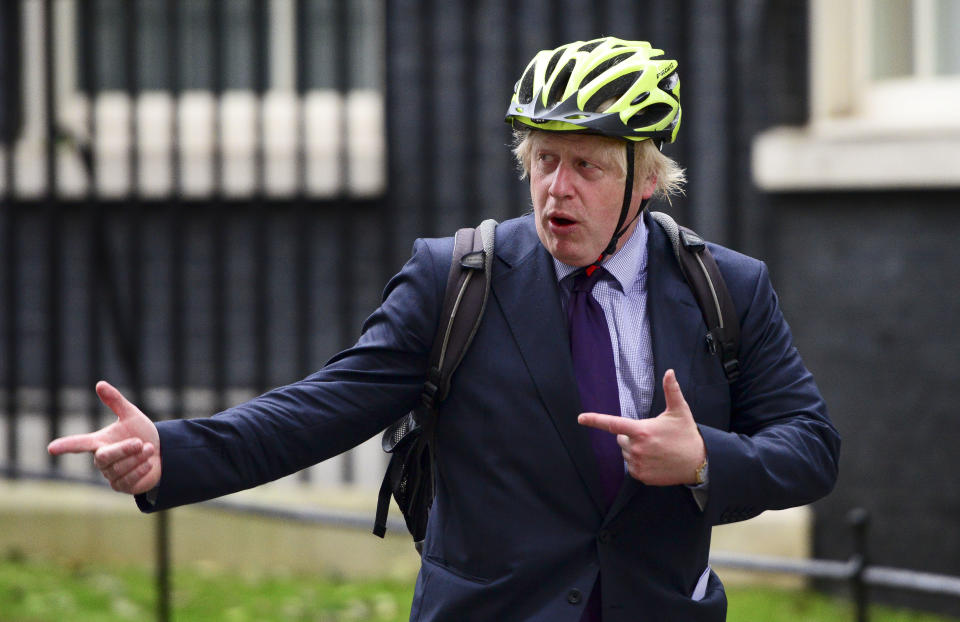Pound slides as Boris Johnson quits in soft Brexit row

The pound slid after Boris Johnson quit as foreign secretary, escalating the row over Brexit and sparking confusion over the future direction of the negotiations to leave the EU.
Johnson’s resignation followed that of Brexit secretary David Davis who resigned from the government on Sunday, initially raising expectations of a “soft” Brexit.
Davis indicated that he did not intend to challenge May’s leadership of the Conservative party and in the morning the pound, which has been a key indicator of sentiment towards Brexit, nudged up to $1.3343 – a rise of 0.4%.
However, those gains were lost after Johnson’s shock resignation – announced at 3pm. The pound fell back to trade at $1.32, a fall of 0.5%, by the time the FTSE 100 closed at 7,687, 70 points higher.
Jeremy Thomson-Cook, chief economist at World First, said that while the market had taken Davis’ resignation as evidence of a soft Brexit, Johnson’s was different. “His resignation opens the door to uncertain and fearful conversations over leadership challenges, general elections and everything in between,” said Thomson-Cook, saying sterling would be weakened as a result.
Theresa May named housing minister Dominic Raab as the new Brexit secretary on Monday.
The ministers quit after a crucial meeting of May’s cabinet on Friday had cleared the way for the UK to negotiate a free trade area for goods with the EU and pay “due regard” to the bloc’s rules. This is being interpreted a softer Brexit and Davis told BBC Radio 4’s Today Programme as the markets were opening in London on Monday that he was not the person to deliver the plan as he did not believe in it.
In his resignation letter to May Davis said “national interest requires a secretary of state in my department that is an enthusiastic believer in your approach, and not merely a reluctant conscript”.
He acknowledged that there had been numerous disagreements before now but had continued to back May as he believed it was still possible to leave the customs union and the single market which he said had been promised in the Conservative party election manifesto. But, after reflecting on Friday’s cabinet meeting at Chequers, he said he had to resign as he was “afraid that I think the current trend of policy and tacks is making that look less and less likely”.
In the run up to that Cabinet meeting in the prime minister’s country retreat, business leaders had queued up to issue warnings about the impact of loss of membership of the customs union. Tom Enders, the chief executive of European plane maker Airbus, had said the government had “no clue, no consensus on how to execute Brexit without severe harm”.
If the plane marker pulls out of the UK it could put more than 100,000 jobs at risk. It employs 14,000 in 25 sites across the UK and supports more than 110,000 jobs in the supply chain.
Before Davis’ resignation, Carolyn Fairbairn, director general of the employers’ body the CBI, had said the agreement of ministers at Chequers was a “genuine confidence boost” about the way forward.
The impact on the markets may remain subdued, unless there is a leadership challenge.
“We’ve been saying that what matters for [sterling] markets is the type of Brexit delivered – not who delivers. The pound is able to live with ministerial resignations as long as that is the extent of the fallout,” said Viraj Patel, foreign exchange strategist at Dutch bank ING.
Dollar weakness will also help support the pound, as will a positive global risk environment, he said, warning against extrapolating political risks from the pound’s movements.

 Yahoo Finance
Yahoo Finance 